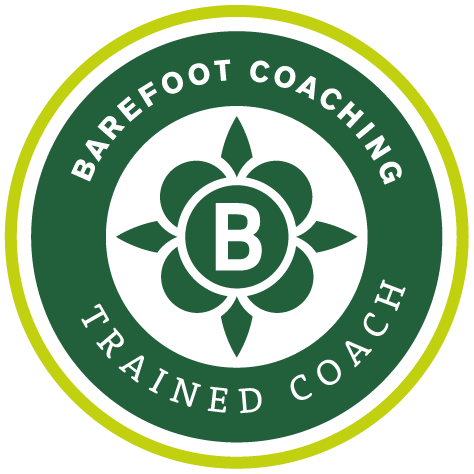Autism & Career Posts

Why my autistic brain loves staycations
We're lucky to have so much annual leave in the UK, but still, it never feels like enough.
I just got back from a week's staycation and enjoyed it way more than I thought I could.
This post will explain why it was great for my autistic brain, and how you can make the most of a staycation too.
For years, every day off work was used for recovery. A city break was unfathomable, all I could do was lie down - whether on a sunbed or at home. Many of my clients come to me when they're at or near burnout and this is the reality for them too.
Thankfully, my work life is much better for me now. Don't get me wrong, I still need recovery time, but I just had a week off and was actually able to do things!
Why my autistic brain loved my staycation
1. No stressful travel days
This one is pretty obvious. We stayed at home so we didn't have to travel anywhere. No hanging around waiting for stuff because I left loads of cushion time because I was worried something would go wrong or be delayed. No running through every possible scenario of what could be delayed, where I could get stranded and what I'd do if that happened. No stressing about whether I've definitely got my passport. No loud strangers, gross toilets, and unfamiliar places to navigate.
2. Less admin
If you're not going away, there's less to book! I don't know about you, but I have to check the dates for planes align with the hotel dates at least ten times and it takes forever and then I've used up all my executive functioning for the day.
We did book a few local activities, but this was way easier and less stressful because the stakes were lower if something went wrong.
3. Less uncertainty
Along with many of my autistic clients, I like to understand the worst case scenario. In fact, I like to run through every possible outcome that I can think of, so I know what I would do in the moment and don't have to come up with a solution when it happens. There are a LOT of possible scenarios when you travel.
There are also so many variables you don't know, for example:
Will I be able to eat any of the food?
What are the hotel's pillows like?
How busy is the train going to be?
Is it going to be loud at the pool?
How long will it take me to get through security?
Where will I put my stuff between check out and travelling home?
Many of these questions become irrelevant for a staycation, and for the ones that don't, you probably have the answer.
4. I have all my stuff
I am a chronic over-packer. I have to pack all my clothes because I don't know what sensory needs I'll have, and if I really want a particular item that I don't have, it can ruin my day.
At home you have your favourite spoons, your safe foods from your safe supermarkets, your pots and pans that you know you're comfortable using, comfy places to sit and sleep, familiar walks and so much more that free up your brain to enjoy and relax, rather than processing unfamiliar surroundings.
This links nicely with the next point - I have all the 'stuff' for my current special interests, so I can engage with as many of them, as deeply as I want, throughout the course of my time off. I would have to choose what to bring if we went away, which could cost prime opportunity to engage with my special interests.
5. More capacity for fun
Have you heard of the seven types of rest? They were described by Saundra Dalton-Smith, M.D. in Sacred Rest as:
Physical
Mental
Sensory
Emotional
Social
Creative
Spiritual
In our post-work recovery, I suspect we autistics rightly prioritise physical, sensory, and social rest. That means we don't get creative rest or time for fun. In staying home, and not having to process loads of unfamiliar stuff, I think we have more capacity to enjoy. To engage in our special interests - and don't forget - we have everything we need to do so!
Because we didn't travel and I needed less sensory and physical rest, I could also socialise more.
6. Cheaper
Hopefully another obvious one - you're not paying to travel and stay somewhere so you save some money. I'm very grateful to have the choice to go away if I want to - not everyone does. Whilst acknowledging my privilege, it's also important to acknowledge not everyone has a home, or one that's comfortable and enjoyable to be in.
We spent a bit extra than usual on treat food and activities, but so much less than we would have if we'd stayed somewhere else for a week.
Perhaps now you're considering a staycation? Here are a few top tips to enjoy it:
Do something to mark the beginning and end. You're not travelling so don't have that usual transition time that marks a holiday beginning.
Do an online food shop to arrive the day before your staycation starts. That way you're stocked up with all your favourites and don't have to start your holiday with an overwhelming trip to the supermarket.
Create an activity box. I wanted to make sure I didn't spend the whole time on my phone, so grabbed a box and put in all my phone-free solo activities for the week. My current knitting project, the book I'm reading, a colouring book, a notebook etc so I always had something easy to grab. We also played lots of board games.
Create menus. I didn't assign times to everything, but I did make lists of all the meals, snacks, indoor activities and outdoor activities we might want to do. This meant that we didn't have to do any research in the moment and could quickly choose what we wanted.
Whatever you do with your next time off, I hope it's what you need it to be.
www.intentionalcoach.co.uk


